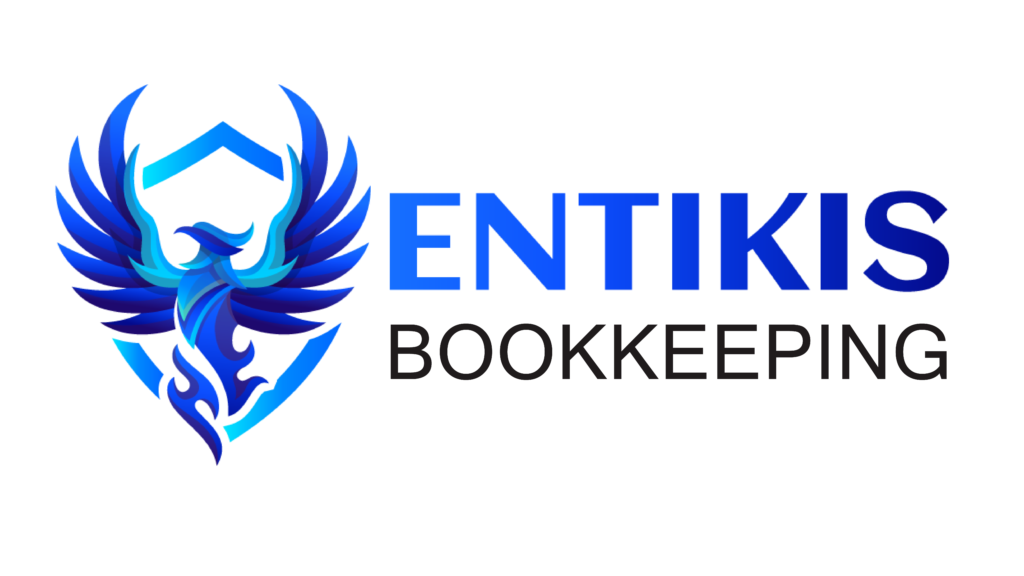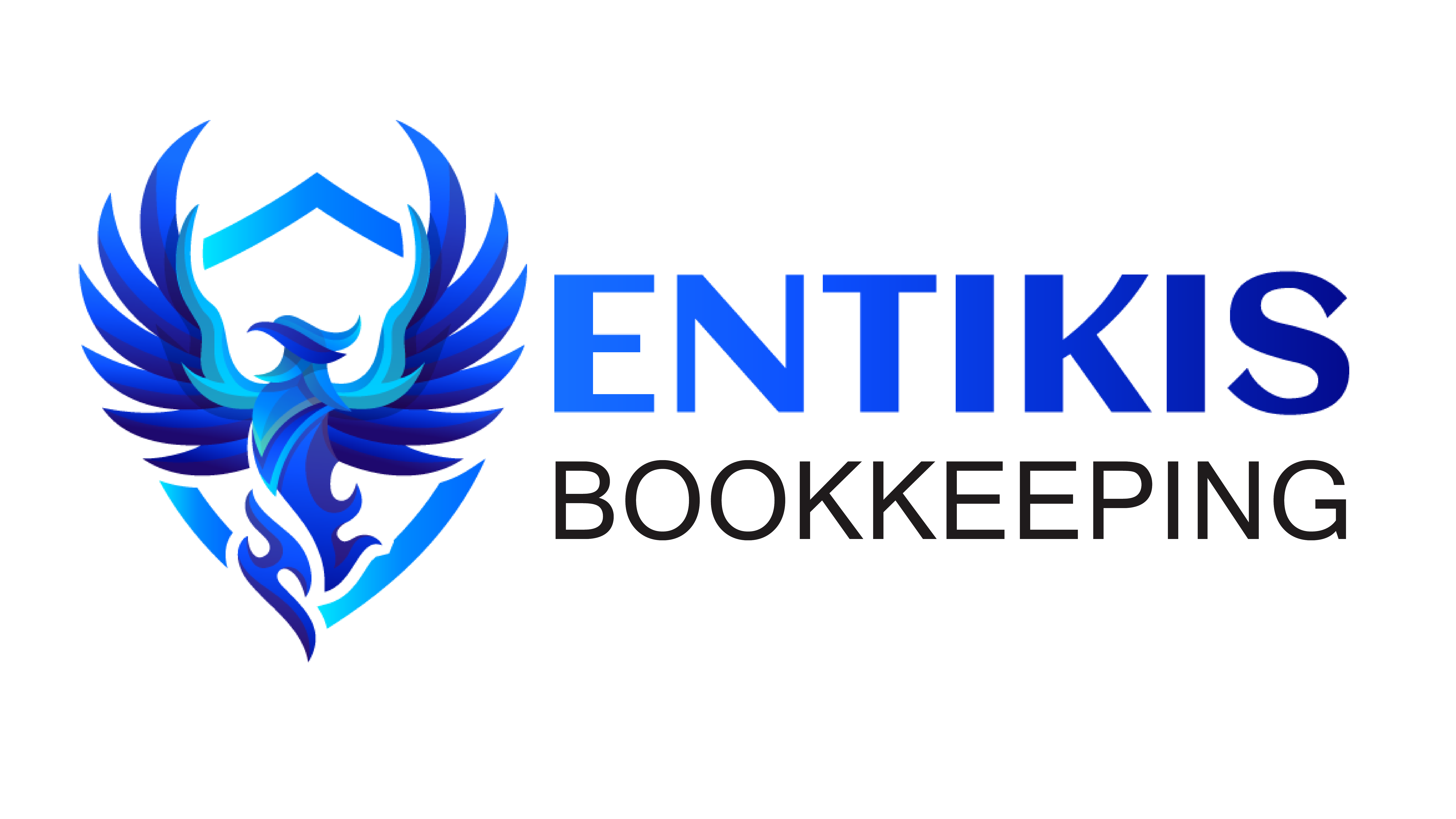
International Bookkeeping Standards - IFRS: A Global Perspective
In the realm of global finance and accounting, businesses often navigate a complex landscape when it comes to adhering to international bookkeeping standards. Whether you’re a multinational corporation or a local enterprise in Forth Worth, Tarrant County, or the surrounding Tarrant County metroplex, understanding the nuances of these standards is crucial. That’s where experts like Entikis Bookkeeping can make all the difference.
Entikis Bookkeeping specializes in ensuring your financial records are not only accurate but also compliant with the ever-evolving international bookkeeping standards. In this blog post, we’ll explore the two primary sets of standards governing financial reporting: IFRS (International Financial Reporting Standards) and GAAP (Generally Accepted Accounting Principles).
International Financial Reporting Standards (IFRS) are a set of accounting standards developed by the International Accounting Standards Board (IASB). They are designed to provide a common global language for business affairs so that company financial statements are understandable and comparable across international boundaries.
IFRS are used in over 140 countries, making them the most widely accepted accounting standards globally. The goal of IFRS is to improve transparency, comparability, and reliability of financial reporting, thereby enhancing investor confidence and facilitating international trade and investment.
One of the key principles of IFRS is the accrual basis of accounting, which requires transactions to be recorded when they occur, regardless of when cash is exchanged. This ensures that financial statements reflect the economic substance of transactions and provide a more accurate representation of a company’s financial position and performance.
IFRS covers a wide range of topics including revenue recognition, financial instruments, leases, and fair value measurement, among others. These standards are continuously updated and revised by the IASB to reflect changes in the global business environment and to address emerging issues and challenges.
Adopting IFRS can bring several benefits to companies, such as improved access to international capital markets, reduced cost of capital, and enhanced credibility with investors and stakeholders. Additionally, IFRS adoption can streamline financial reporting processes for multinational companies operating in multiple jurisdictions by eliminating the need to reconcile financial statements prepared under different accounting standards.
However, implementing IFRS can also pose challenges for companies, particularly in terms of initial costs associated with training, systems upgrades, and changes in accounting policies and procedures. Moreover, differences between IFRS and local GAAP (Generally Accepted Accounting Principles) may require companies to make adjustments and disclosures to ensure compliance with both sets of standards.
Overall, IFRS play a crucial role in promoting transparency and comparability in financial reporting on a global scale, ultimately contributing to the efficiency and effectiveness of capital markets and economic growth worldwide.
International Financial Reporting Standards (IFRS) stand as a pinnacle of global financial reporting standards, designed to harmonize accounting practices across borders, facilitating transparency, comparability, and reliability in financial reporting. Developed by the International Accounting Standards Board (IASB), IFRS serves as a common language for businesses, investors, regulators, and other stakeholders worldwide.
At its core, IFRS embodies a principles-based approach to accounting, focusing on the economic substance of transactions rather than strict rules. This flexibility allows for the adaptation of accounting standards to diverse industries, legal systems, and economic environments. By emphasizing principles over detailed rules, IFRS encourages professional judgment and the application of sound accounting principles to reflect the underlying economic reality of transactions accurately.
One of the primary strengths of IFRS is its global applicability. IFRS is used in over 140 countries, making it the most widely accepted accounting standard globally. This widespread adoption has several advantages, including improved comparability of financial statements across jurisdictions, reduced barriers to cross-border investment, and enhanced transparency in global capital markets. Investors and stakeholders benefit from access to consistent and reliable financial information, enabling better-informed decision-making and risk assessment.
IFRS covers a broad range of accounting topics, including revenue recognition, financial instruments, leases, and fair value measurement, among others. The standards are continuously updated and refined by the IASB to reflect changes in the global business environment and address emerging issues and challenges. This ongoing evolution ensures that IFRS remains relevant and responsive to the needs of stakeholders in an ever-changing economic landscape.
One of the key achievements of IFRS is the convergence of accounting standards on a global scale. Efforts to converge national accounting standards with IFRS have resulted in greater consistency and comparability in financial reporting practices worldwide. Convergence projects undertaken by the IASB in collaboration with national standard-setting bodies aim to eliminate differences between IFRS and local GAAP, reducing the complexity and costs associated with preparing financial statements for multinational companies.
Despite its many benefits, the adoption of IFRS presents challenges for companies and regulators alike. Transitioning to IFRS requires significant investment in training, systems upgrades, and changes in accounting policies and procedures. Moreover, differences between IFRS and local GAAP may necessitate adjustments and disclosures to ensure compliance with both sets of standards. Additionally, ongoing changes and updates to IFRS can pose challenges for companies in terms of staying abreast of the latest requirements and maintaining compliance.
In conclusion, International Financial Reporting Standards (IFRS) represent a global perspective on financial reporting, aiming to harmonize accounting practices across borders and enhance transparency, comparability, and reliability in financial reporting. By providing a common language for business affairs, IFRS facilitates cross-border investment, improves access to capital, and enhances the efficiency and effectiveness of global capital markets. While the adoption of IFRS presents challenges for companies and regulators, the benefits of a globally accepted accounting standard far outweigh the costs, ultimately contributing to the stability and growth of the global economy.
IFRS is a set of accounting standards developed by the International Accounting Standards Board (IASB). It’s designed to provide a common language for financial reporting, allowing companies in the Tarrant County metroplex and beyond to compare their financial statements with those of international counterparts. As Forth Worth businesses expand globally, adhering to IFRS can be a game-changer.
When working with Entikis Bookkeeping for your bookkeeping needs, you’ll benefit from their deep expertise in IFRS. They’ll help you ensure that your financial statements meet the expectations of international stakeholders and regulatory bodies.
International Bookkeeping Standards - GAAP: The U.S. Standard
On the other side of the bookkeeping spectrum is GAAP, the accounting principles and standards that are primarily used in the United States. While IFRS aims for global consistency, GAAP is specific to the U.S. market. For local businesses in Forth Worth and Tarrant County, GAAP compliance is often a necessity.
Entikis Bookkeeping understands the importance of GAAP compliance for businesses in the Tarrant County area. Their team of experts ensures that your financial records align with these standards, making your financial reporting process smooth and efficient.
International Bookkeeping Standards (IBS) and Generally Accepted Accounting Principles (GAAP) in the United States represent two distinct yet interconnected frameworks for financial reporting. While IBS, particularly International Financial Reporting Standards (IFRS), aim to provide a global standard for accounting practices, GAAP serves as the primary standard for financial reporting in the United States.
GAAP is a set of accounting principles, standards, and procedures established by the Financial Accounting Standards Board (FASB) and other regulatory bodies. These standards govern the preparation of financial statements and ensure consistency, comparability, and transparency in financial reporting. GAAP encompasses a wide range of topics, including revenue recognition, expense recognition, asset valuation, and financial statement presentation.
One of the key differences between IBS and GAAP lies in their approach to accounting standards. While IBS, particularly IFRS, adopts a principles-based approach, emphasizing the underlying economic substance of transactions, GAAP tends to be more rule-based, with specific guidelines and criteria for accounting treatment. This difference in approach can lead to variations in financial reporting practices between countries following IFRS and those following GAAP.
Despite these differences, there is a significant overlap between IBS and GAAP, particularly in terms of underlying principles and objectives. Both frameworks prioritize the provision of relevant, reliable, and comparable financial information to investors, creditors, and other stakeholders. As a result, many of the accounting standards and principles outlined in GAAP are aligned with those in IFRS, facilitating cross-border comparisons and analysis of financial statements.
However, differences between IBS and GAAP do exist, particularly in areas such as revenue recognition, leasing, and financial instruments. For example, the FASB and the International Accounting Standards Board (IASB) have historically taken different approaches to revenue recognition, with the FASB emphasizing detailed guidance and criteria under GAAP, while the IASB focuses on broader principles under IFRS. Similarly, the accounting treatment of leases and financial instruments can vary between IBS and GAAP, leading to differences in financial reporting outcomes.
In recent years, efforts have been made to converge IFRS and GAAP to minimize discrepancies and enhance global comparability in financial reporting. The FASB and the IASB have collaborated on several projects aimed at aligning their respective standards, particularly in areas where differences between IFRS and GAAP have been significant. These convergence efforts have resulted in the issuance of joint standards, such as the new revenue recognition standard, which aims to improve consistency and comparability in revenue recognition practices globally.
Despite these convergence efforts, some differences between IBS and GAAP persist, reflecting the diverse economic, legal, and regulatory environments in which they operate. For example, while the United States has made significant progress towards adopting IFRS for domestic reporting purposes, it has not yet fully transitioned to IFRS as the sole accounting standard. Instead, U.S. companies have the option to use either GAAP or IFRS for financial reporting, depending on their specific reporting requirements and regulatory obligations.
In conclusion, while IBS and GAAP represent distinct frameworks for financial reporting, they share common objectives and principles aimed at enhancing the transparency, comparability, and reliability of financial information. Efforts to converge IFRS and GAAP have helped minimize discrepancies and improve global comparability in financial reporting, but differences between the two frameworks persist, reflecting the unique characteristics of each jurisdiction. As companies continue to operate in an increasingly globalized business environment, understanding the similarities and differences between IBS and GAAP remains essential for ensuring compliance with relevant accounting standards and facilitating cross-border comparisons of financial information.
On the other hand, GAAP in the United States is governed by the Financial Accounting Standards Board (FASB) and is characterized by a more rule-based approach to accounting. GAAP provides detailed guidelines and criteria for accounting treatment, ensuring consistency and accuracy in financial reporting. While GAAP and IFRS share common objectives, such as transparency and reliability, differences in their approach to accounting standards can result in variations in financial reporting practices.
Despite these differences, efforts have been made to converge IFRS and GAAP to enhance global comparability in financial reporting. Convergence projects undertaken by the FASB and the International Accounting Standards Board (IASB) aim to align their respective standards, particularly in areas where differences between IFRS and GAAP are significant. These convergence efforts have resulted in the issuance of joint standards, such as the new revenue recognition standard, which aims to improve consistency and comparability in revenue recognition practices globally.
In conclusion, while IBS and GAAP represent distinct frameworks for financial reporting, they share common objectives and principles aimed at enhancing the transparency, comparability, and reliability of financial information. Efforts to converge IFRS and GAAP have helped minimize discrepancies and improve global comparability in financial reporting, but differences between the two frameworks persist, reflecting the unique characteristics of each jurisdiction. As companies continue to operate in an increasingly globalized business environment, understanding the similarities and differences between IBS and GAAP remains essential for ensuring compliance with relevant accounting standards and facilitating cross-border comparisons of financial information.
As your business expands beyond Forth Worth and into the broader Tarrant County metroplex, the need to bridge the gap between IFRS and GAAP becomes evident. Navigating these international bookkeeping standards can be a complex endeavor, but with the guidance of Entikis Bookkeeping, you’ll have a trusted partner by your side.
Whether you operate within Tarrant County or have ambitions to explore markets outside the county, Entikis Bookkeeping offers tailored bookkeeping solutions that meet your specific needs. Their commitment to excellence and their understanding of the intricacies of international standards make them the go-to partner for businesses in the Tarrant County metroplex and beyond.
Understanding and complying with international bookkeeping standards, such as IFRS and GAAP, is essential for businesses in Forth Worth, Tarrant County, and the surrounding Tarrant County metroplex. Choosing a reliable partner like Entikis Bookkeeping can make a significant difference in your financial reporting accuracy and compliance.
In the ever-evolving landscape of global business, the need for standardized financial reporting has become increasingly apparent. As companies expand their operations across borders and investors seek opportunities in international markets, there is a growing demand for financial information that is transparent, comparable, and reliable. This demand has led to the widespread adoption of International Financial Reporting Standards (IFRS) as a common framework for financial reporting.
IFRS represents a significant step towards harmonizing accounting practices worldwide. By providing a single set of high-quality accounting standards, IFRS aims to facilitate cross-border transactions, enhance investor confidence, and improve the efficiency of capital markets. However, the journey towards global harmonization is not without its challenges, and bridging the gap between local accounting practices and IFRS remains a complex and ongoing process.
One of the primary challenges in adopting IFRS is the diversity of accounting practices and regulatory frameworks across different countries. While IFRS provides a comprehensive framework for financial reporting, many countries have developed their own set of accounting standards, known as Generally Accepted Accounting Principles (GAAP). These differences in accounting standards can create barriers to international trade and investment, as investors and stakeholders struggle to compare financial information from different jurisdictions.
To address this challenge, efforts have been made to converge local GAAP with IFRS through a process known as “convergence.” Convergence involves aligning local accounting standards with IFRS to minimize discrepancies and facilitate a smoother transition towards global harmonization. However, convergence is not always straightforward, as it requires careful consideration of the unique economic, legal, and cultural factors influencing accounting practices in each country.
Another challenge in adopting IFRS is the complexity of the standards themselves. IFRS covers a wide range of topics, from revenue recognition to financial instruments, leases, and fair value measurement. The complexity of these standards can pose implementation challenges for companies, particularly smaller businesses with limited resources and expertise in financial reporting. As a result, many companies may struggle to interpret and apply IFRS correctly, leading to errors and inconsistencies in financial reporting.
Moreover, the continuous evolution of IFRS adds another layer of complexity for companies trying to stay compliant with the latest standards. The International Accounting Standards Board (IASB), which oversees the development of IFRS, regularly updates and revises the standards to reflect changes in the global business environment and address emerging issues and challenges. Keeping up with these changes requires ongoing training and education for finance professionals, as well as updates to accounting systems and processes.
Despite these challenges, the benefits of adopting IFRS are significant. By harmonizing accounting practices worldwide, IFRS enhances transparency, comparability, and consistency in financial reporting, which in turn improves investor confidence and facilitates international trade and investment. Moreover, IFRS adoption can streamline financial reporting processes for multinational companies operating in multiple jurisdictions, reducing the cost and complexity of compliance with different accounting standards.
In conclusion, bridging the gap between local accounting practices and IFRS is essential for achieving global harmonization in financial reporting. While challenges remain, efforts to converge local GAAP with IFRS and improve the accessibility and clarity of the standards will help facilitate the transition towards a more standardized and transparent financial reporting framework on a global scale.
If you are looking for professional bookkeeping services, please contact us at admin@entikis.com and 817-415-1715 to learn more about how Entikis Bookkeeping can support your journey to success! Located at 640 Taylor St Suite , Fort Worth, TX, United States, Texas. We offer professional bookkeeping services for businesses in the Burleson, Fort Worth and the Surrounding Tarrant County Metroplex.



